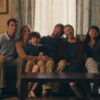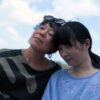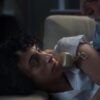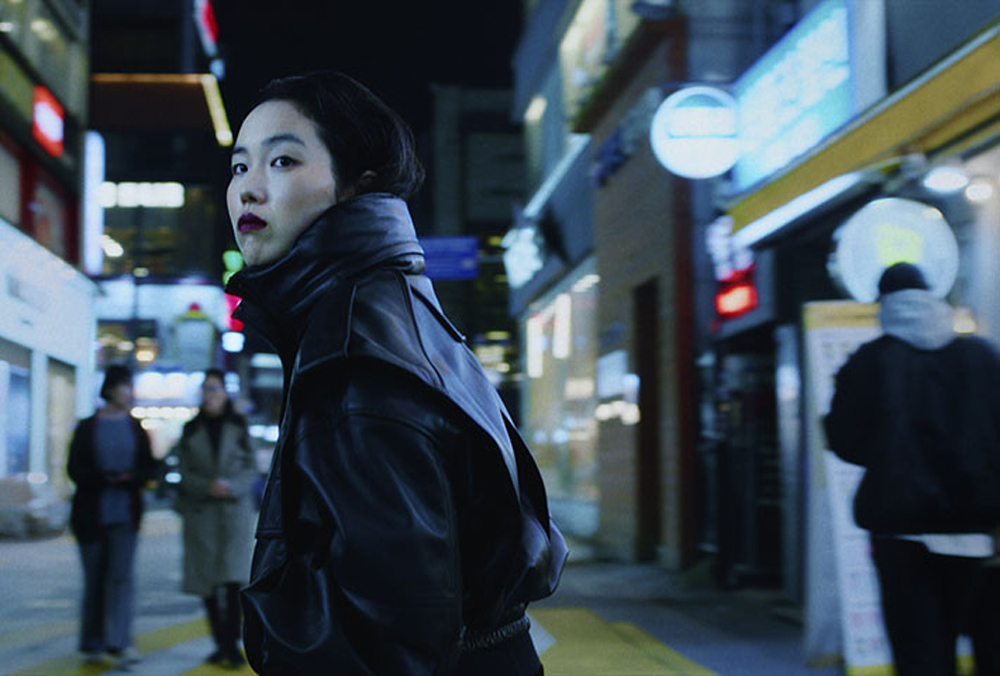It’s a bit ironic that as Freddie (Park Ji-Min) goes in search of her roots in “Return to Seoul,” those that she has unrelated to her family tree are unusually strong. In Davy Chou’s spellbinding drama that comes to resemble a whirlwind as it courses through a decade – as much in force as in spirit, Freddie has the resilience of one of those inexplicably sturdy reeds where stability stems from being able to twist no matter how awkward or uncomfortable the contortion, a quality that the film wastes no time in showing off after she checks into a hotel and is going out for drinks with Tena (Guka Han), the clerk that checks her in, and her friend Dongwan (Son Seung-Beom) in no time. Freddie hasn’t been back to Korea as an adult, having been adopted by a couple from France at birth, but she’s able to pound soju with the best of them, making an inability to speak the same language moot when everyone can understand her once she says she’s buying the rounds.
It’s charming, a bit reckless and an altogether shrewd introduction to Freddie when it offers a rare moment that she can take control of a situation to her liking, even aware of the hangover that will inevitably follow. That all ends once Dongwan tips her off to a nearby adoption center said to hold the records of many babies sent abroad in the aftermath of the Korean-American war and Freddie, who may have made the trek to Seoul but isn’t entirely sure whether she wants to know more about her biological parents, is thrust into a bureaucratic nightmare as she’s informed that the couple that conceived her will be contacted at her request, but have the right to decline to see her. Only her father (Oh Kwang-Rok) responds immediately, long separated from her mother, and Freddie enjoins Tena, who can act as a translator, to take a trip to the seaside village where he started another family in the intervening years.
If “Return to Seoul” were just about Freddie’s search for where she came from, it’d be compelling when Park is such a magnetic presence you’d follow her anywhere and Chou’s attention to detail regarding the adoption process and its application that sent so many Korean babies abroad is fascinating in its own right. But the writer/director matches the unruly emotions that Freddie wrestles inside of herself after getting at least a little of the information she wants, more repulsed than welcoming of her father’s desire for a closer relationship and his drunken texts saying as much, with an undulating narrative that shows how she’s been shaped by what she’ll never be able to know about herself, admirably defiant at times when her feeling that she has no one but herself to depend on has given her confidence, but self-defeating at others when she’s unlikely to be able to fully trust anyone.
The film drifts beautifully between extremes, attuned to Freddie’s dysphoria with cinematographer Thomas Favel leaping into the neon-soaked nightlife she can lose herself in with similar aesthetic aplomb and operating at a cool, composed remove during her interactions with anyone connected to her adoption, even her adoptive mother who is left to wonder what’s driving her interest in the circumstances surrounding her birth. When the answers are bound to disappoint Freddie after building them up in her head, Chou counters the unsatisfying feeling she’s missing part of her life by thrusting audiences into her experience in such a way that it feels so full, even if she’s the last to recognize it. When Freddie is perhaps destined to be an orphan forever in her own mind, in “Return to Seoul,” there becomes no limit to how many out there will care for her.
“Return to Seoul” will screen at the New York Film Festival at the Walter Reade Theater on October 13th at 6:15 pm and October 15th at noon.




